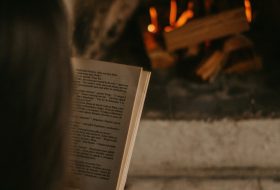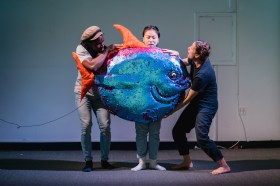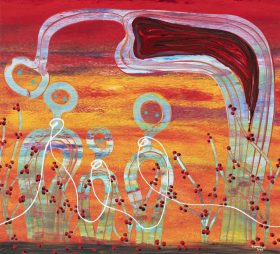Actor, storyteller, activist, musician and Boon Wurrung, Dja Dja Wurrung, Woiwurrung and Yorta Yorta elder Jack Charles has died. He was 79.
Charles passed away at the Royal Melbourne Hospital on Tuesday 13 September. In a statement released by Charles’ family, who have given the media permission to use Jack Charles’ name and image, his loved ones wrote: ‘We are so proud of everything he has achieved in his remarkable life – elder, actor, musician, potter, activist, mentor, a household name and voice loved by all.’
Prime Minister Anthony Albanese paid immediate tribute. ‘He lived a hard life but leaves a joyous legacy … He uplifted our nation with his heart, his genius and his passion.’
Federal Minister for the Arts Tony Burke described Charles as ‘a trailblazer, a truth-teller, an incredible artist,’ adding that ‘today we’ve lost a great Australian.’
Minister for Indigenous Australians Linda Burney remembered Charles as a ‘a ground-breaking storyteller and activist who brought people in with his warmth and grace, never shying away from his past and who he was.’
Uncle Jack Charles’s death comes shortly after he was named Male Elder of the Year in the 2022 NAIDOC Awards, in recognition of his importance to Indigenous theatre, his advocacy for young Aboriginal men in prison and his tireless relating of a personal story that spoke of and to so many.
It was one of many awards, including the 2009 Tudawali Award at the Message Sticks Festival and the 2014 Green Room Lifetime Achievement Award. In 2016 he was named Victorian Senior Australian of the Year.
Jack Charles was of the Stolen Generation.
Born in 1943, he was taken from his mother as an infant and raised in the Salvation Army Boys’ Home in Box Hill in suburban Melbourne. The abuse he endured there marked him profoundly and his later life was marked by drug dependence and petty crime – something he never shied away from.
A multi-faceted artist (he was also a potter, a skill he acquired in prison), Charles was a leading figure in the establishment of an Indigenous theatre in Australia. With Bob Maza, he founded Nindethana Theatre at Melbourne’s Pram Factory in 1971 and its first production, Kevin Gilbert’s The Cherry Pickers, is widely regarded as Australia’s first Aboriginal play written in English. As a writer, Charles’ first play, Jack Charles is Up and Fighting (1972), was a notable hit for the company.
Charles’ talent as an actor was quickly recognised. He starred as Bennelong on the Old Tote Theatre’s Sydney Opera House staging of Cradle of Hercules in 1974. Later he was cast as Harry Edwards in Fred Schepisi’s 1978 acclaimed film drama The Chant of Jimmy Blacksmith. Over the next four decades, Charles would play roles in more than 40 films and TV series. Charles’ own life was the subject of Amiel Courtin-Wilson’s 2008 documentary Bastardy.
Read: ScreenHub’s In Memory of Uncle Jack Charles
Theatre goers – tens of thousands of them – came to know Charles through his autobiographical performance Jack Charles v The Crown, which he co-authored with his longtime friend John Romeril.
Premiering in 2010, the production played all states and territories up to 2014 and it cemented his reputation as one of the nation’s great storytellers. The show played internationally, too: at the Barbican in London; in the Samuel Beckett Theatre in Dublin; at the National Arts Centre in Ontario, Canada and in Japan’s Shizuoka Performing Arts Centre. All who saw Charles on stage will recall his impish humour, wonderful voice and winning candour.
Uncle Jack Charles gained much insight through his travails. His wisdom was hard won yet graciously shared, his message always clear: you’re never too far-gone to turn it around, and it’s never too late for an apology.





